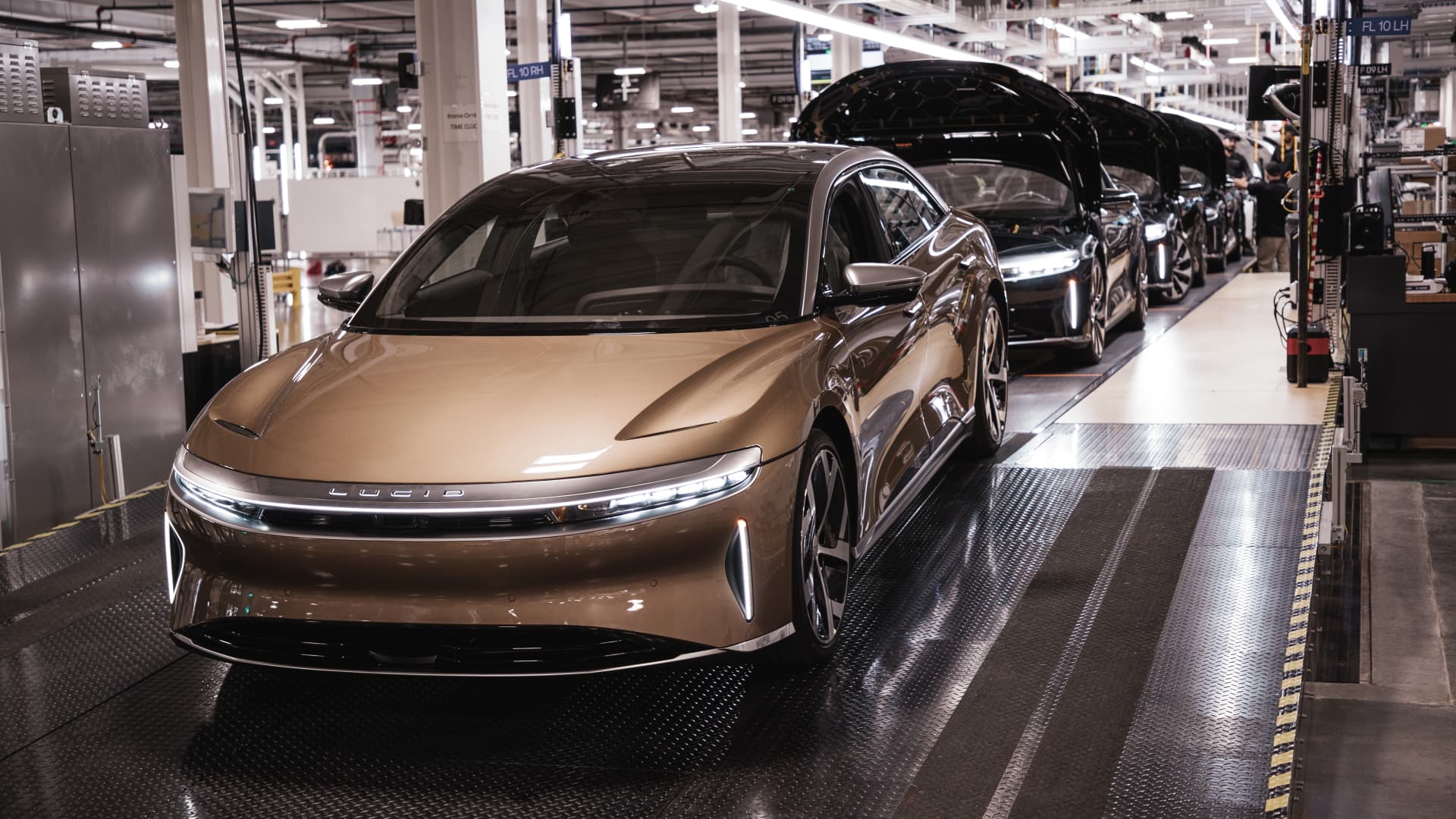
Electric vehicle start-up Lucid on Sept. 28, 2021 said production of its first cars for customers has started at its factory in in Casa Grande, Arizona.
Lucid
Electric vehicle maker Lucid on Wednesday reported fourth-quarter revenue that fell short of expectations after building just 7,000 of its Air luxury sedans last year amid manufacturing challenges. But the company said it expects to make between 10,000 and 14,000 vehicles in 2023.
Shares of the company fell roughly 7% in afterhours trading.
Here’s what the company reported for the fourth quarter of 2022:
- Loss per share: 28 cents
- Revenue: $257.7 million, vs. $303 million, according to Refinitiv consensus estimates
Lucid’s quarterly revenue marks a sharp increase from the same period last year, when it had just begun production of the Air sedan and brought in $26.4 million. The company’s bottom line likewise improved, coming in narrower than the 64-cent loss per share it posted in the year-ago period.
The company ended the year with about $4.4 billion in cash and roughly $500 million available via lines of credit, enough to last until the first quarter of 2024, chief financial officer Sherry House told CNBC. Lucid had $3.85 billion in cash as Sep. 30; it raised an additional $1.5 billion from Saudi Arabia’s Public Investment Fund and other investors via an equity offering in December. The Saudi public wealth fund owns about 62% of Lucid.
Lucid said in January that it produced 7,180 vehicles in 2022, well below its original expectation of 20,000 for the year but enough to beat the lowered guidance it provided in August. But it delivered just 4,369 of those Air sedans to customers before year-end.
“Our goal in 2023 is to amplify our sales and marketing efforts to get this amazing product into the hands of even more customers around the world,” CEO Peter Rawlinson said.
Lucid said it had more than 28,000 reservations for its vehicles as of Feb. 21, down from “over 34,000” reservations in its last update on Nov. 7.
The company said in April that Saudi Arabia’s government had agreed to buy up to 100,000 of its vehicles over the next 10 years. Those vehicles aren’t included in its reservation totals.
